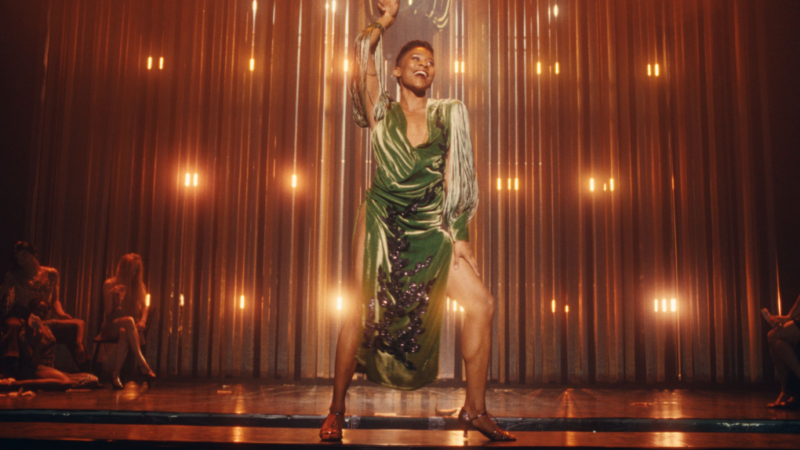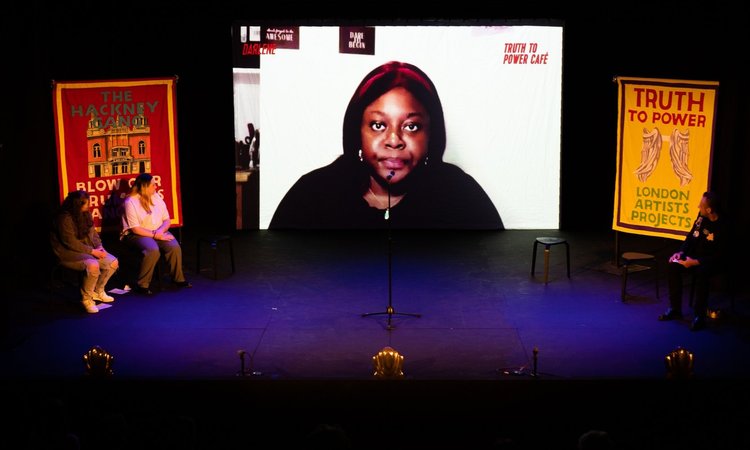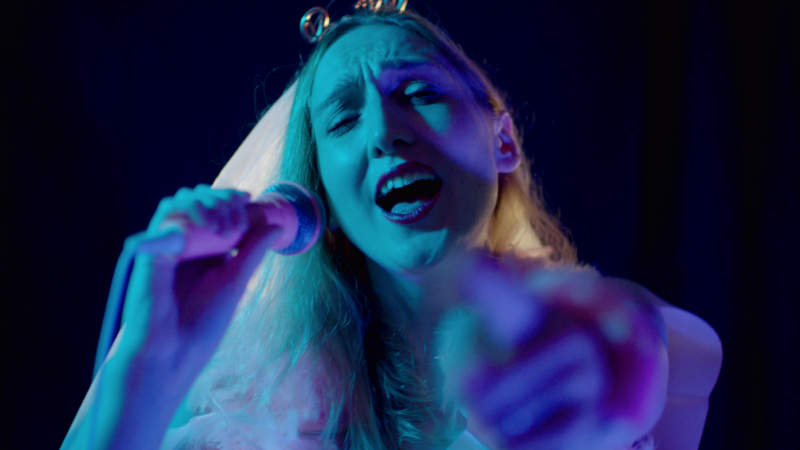Are you a small company ambitious to engage a wider range of audiences but fear you don’t have the organisational capacity for digital content? This case study looks at how Talawa, Britain’s primary Black theatre company, collaborated with Manchester’s Royal Exchange Theatre to bring its epic production of King Lear to new audiences in cinemas, on TV and online.
Talawa is a small theatre company with big ambitions. Its Black-led production of King Lear starred a high-profile cast including Don Warrington, Alfred Enoch (Harry Potter franchise, How to Get Away with Murder) and Miltos Yerolemou (Game of Thrones, Star Wars), was co-produced by Manchester’s Royal Exchange Theatre and was staged in the 400th anniversary year after Shakespeare’s death.
The production offered a unique chance for audiences to reimagine the look and ethnic make-up of historic Britain. As Talawa’s artistic director Michael Buffong described:
“I’ve been fascinated by the idea of hidden histories, and by the idea of Black British nobility. And if it existed what happened to it? Could it have just been written out of history? We know that there are works of art that are hidden from the public that depict the Black presence in England a long time before the Windrush. What if that presence goes back further than we think?”
When he was researching the production, Michael struggled to find archive of Black-led Shakespeare productions on film. One of his prime motivations for capturing King Lear was to preserve it as a historical document for future theatre-makers and audiences. As such, the capture of King Lear not only challenged stereotypes about what small companies can do, but also challenged preconceptions about who Shakespeare’s work is about and who it is for as Talawa actively sought audiences new to Shakespeare.
Talawa’s key aims were to:
- Flex the company’s muscles and showcase its work in its 30th anniversary year
- Collaborate with other companies in a series of partnerships to create a quality digital product
- Engage audiences new to Shakespeare and new to Talawa, who perhaps did not feel Shakespeare was for them
- Create a historic record of the ground-breaking production
When The Space commissioned King Lear, its aim was to help Talawa to reach a wider audience with the production, particularly those who might not traditionally think that Shakespeare is for them.
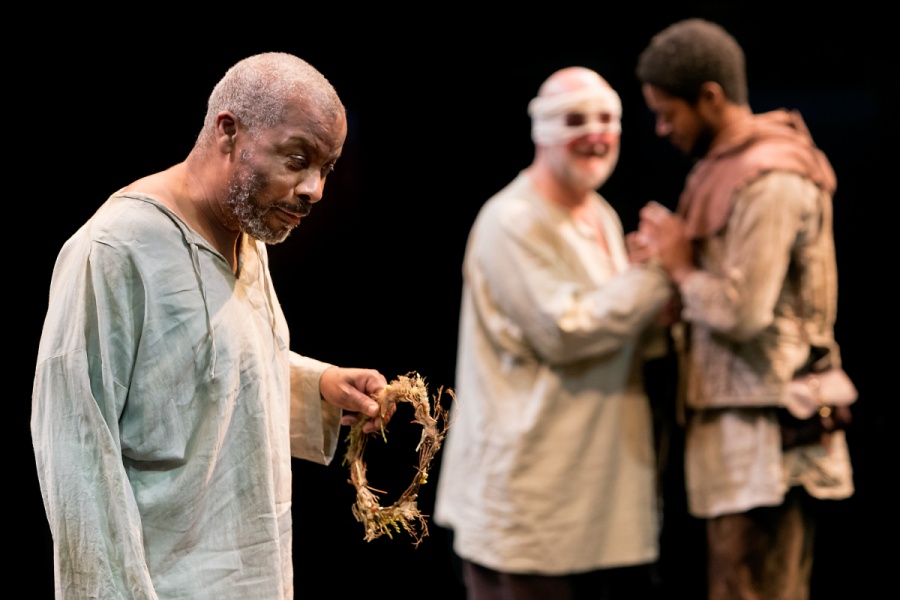
This case study is based on interviews with Helen Spencer, The Space’s Commissioning Executive, Michael Buffong, Artistic Director of Talawa, Caroline Roberts-Cherry, Creative Director of Saffron Cherry TV, and Owen Hopkin, Head of Audience Development at The Space.
Approach
Funding
Artistic companies come to The Space with a number of business and distribution models. The Space does offer 100% funding for projects but it’s also happy to invest alongside other stakeholders particularly if this presents great distribution opportunities for the work.
When Talawa, their co-producer the Royal Exchange Theatre and their production partner Saffron Cherry approached The Space, they already had some funding for a capture from the British Council’s Shakespeare Lives season. Work included in the season was to be available on both a dedicated micro site and BBC iPlayer on demand and free of charge for three months in summer 2016 as part of the celebrations around the 400th anniversary of Shakespeare’s death.
Helen Spencer, Commissioning Executive at The Space, said it is very appealing for a commissioner to see other funding partners are already on board, and particularly great in this case to see it was commissioned under the Shakespeare Lives series which had good distribution platforms and the anniversary ‘hook’.
Capacity
Talawa is a small organisation, with three full-time staff and four part-time staff. To capture a production, there was a lot to think about in terms of rights, contracting and distribution options. Michael said that arts organisations should be prepared for the amount of time and work the administrative aspects of a capture requires.
For Talawa, its partnerships with the Royal Exchange Theatre (which co-produced King Lear and was where it was staged) and independent production company Saffron Cherry were crucial to delivering the capture both in terms of the live theatrical production and access to audiences.
Helen emphasised that, by collaborating with bigger and/or specialist companies, small companies can be more ambitious and the partnerships can deliver projects which are more than the sum of their parts.
Planning filming
King Lear was staged in the round. This meant there were more angles to capture than there would have been in a proscenium arch production. Additionally, the multicamera director had to ensure that she did not ‘cross the line’ at any point as she cut between different cameras – this is a film term that refers to an imaginary line that cuts down the middle of a scene and the camera’s relationship to it; if the line is ‘crossed’, it changes the viewer’s perspective on where people and things are and is confusing and disorientating.
King Lear was shot using nine cameras – the number of cameras required for a capture is decided by the multicamera director after watching the show, and depends on how the show is staged, how many cast members there are and how it is blocked. King Lear was directed by highly experienced multicamera director Bridget Caldwell.
The costumes used in the production featured leather and other materials which meant it was not suitable for the actors to wear radio mics. Instead, 30 microphones were rigged across the venue and the sound was later mixed in the edit.
Rather than using a full outside broadcast truck, a ‘fly pack’ was built in a room at the Royal Exchange where Bridget and her team set up a mobile television gallery in order to watch what the cameras were capturing, communicate with the crew and cut between them as per Bridget’s camera script.
Michael described the atmosphere in the theatre on filming day: “It is so exciting when you get to the theatre with the sound and cameras there. It’s buzzing and you can feel that amongst the crew.”
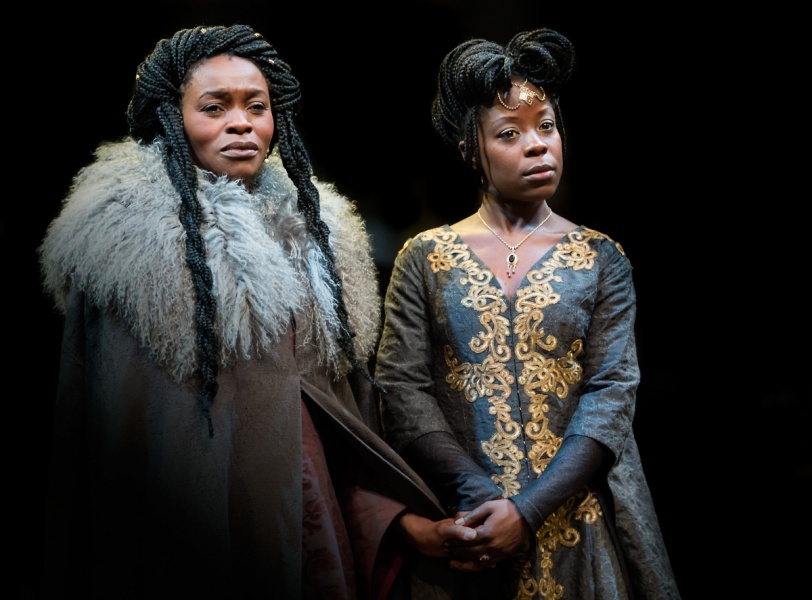
Editing
King Lear was not broadcast live – it was filmed on two nights, although the final film is almost entirely footage from the second filmed performance. It was edited and the sound was mixed shot by shot. Michael was very involved in this process to ensure the film captured his intentions.
Michael said that other arts organisations should not underestimate how lengthy this process is, especially if you are doing multiple versions (for cinema, TV) and cutting trailers. Caroline said she thinks it was the edit that gave the finished King Lear the cinematic quality of a film, which is what the team had set out to achieve.
Increasing audience reach
Rethinking marketing channels and marketing hooks
One of the central ambitions for King Lear was for the capture to reach audiences who may not be familiar with Shakespeare as well as wider audiences more generally. Therefore, the team sought marketing input from partners including a specialist marketing and PR company, the Royal Exchange’s marketing team and The Space.
As well as mounting a traditional PR campaign, the team also ran a peer-to-peer campaign using Twitter to reach out to groups and other communities who may not come across it through traditional channels but who the company felt the production might appeal to. This included targeting fans of Game of Thrones and Harry Potter because of Alfred Enoch and Miltos Yerolemou’s involvement in the show.
Owen Hopkin, Head of Audience Development at The Space, said Twitter was significant for expanding the audience for King Lear, and there was a dedicated KingLearTheFilm feed. He mentioned that Twitter posts are a good marketing method, but that it was also good to reach out to people directly by tagging message @[name] and using direct messaging to contact them. Owen said it is easier to make these direct connections on Twitter than on Facebook. He added that on the King Lear feed the team kept the messaging focused and specific – outreach must be targeted in order to work, otherwise people think it’s spam.
Making Shakespeare more accessible
As well using social media to widen the marketing channels the team were using, they also took the finished film out to audiences in key places and at key events to present it to the people the team wanted to attract. Caroline (Saffron Cherry TV) arranged for the premiere screening of King Lear to be held at a high-profile event at London’s City Hall, and arranged for free cinema screenings of the film in a further 12 cinemas across the country as part of Black History Month. Some of these screenings featured a Q&A discussion with Michael and the show’s lead actor Don Warrington and aimed to bring a new audience to Shakespeare’s work. Don also took the film the Trinidad and Tobago film festival, giving it reach beyond the UK.
Increasing the profile of Talawa and the production
Following the cinema release of King Lear in September and October 2016, the film was later picked up by BBC Four and broadcast on Christmas Day. Michael said the company would never have predicted that King Lear would have landed on the BBC, especially not in such a high-profile slot. This gave the show a truly UK-wide reach and demonstrates that distribution platforms (including high-profile platforms) can come on board and extend the reach of a production beyond its initial commission. Michael said that in terms of enhancing the company’s profile, the BBC broadcast was a significant outcome.
Outcomes
The audience metrics on which The Space evaluated King Lear were the views of the BBC Four broadcast and subsequent BBC iPlayer views (including as part of the Shakespeare Lives season), plus the distribution in the cinemas. In total, there were over 112,000 views of the production.
There was also widespread press coverage including The Daily Mail, The Sunday Express, Metro, Huffington Post and Digital Spy. In total there were 73 pieces of coverage.
For Talawa as an organisation, the project was significant in several ways. They described the outcomes as below:
- There is a broad national and international audience for our work
- Our work can travel beyond the stage
- Collaboration can help us overcome lack of internal capacity to develop ideas
Michael said the experience has also made digital central to the company’s thinking and planning. He said: “I think we think about digital now anyway – we think, how can we utilise this play, this product we have, can we capture it, or if not, can we capture even part of it?”
And the journey may not be over for King Lear: DVD distribution for the production being considered, and the team are also looking at other platforms that King Lear could be made available on, all of which would give the production an even bigger reach.
Tips
- Be ambitious. Firstly, be ambitious with the production and then be ambitious with what you can do with what you have created.
- Prepare as much as you can – a lot of planning has to take place before you get a greenlight to go ahead with a capture.
- Being small means being strategic. By canny collaborations you can be ambitious whatever the size of your company. Working with partners can make you stronger – you become more than the sum of your parts and can increase effectiveness.
- Work with an experienced production company which understands your artistic vision and can deliver it to your audiences.
- Make sure all partners are in agreement and work together to help maximise exposure.
- Be prepared for how much time and work it will take for your organisation to negotiate the necessary contracts for a capture or TV broadcast. It may be wise for you to get independent legal advice so you can be sure of your position.
- Ensure all partners understand and agree that the commissioned organisation has the final say
- Bring in the experts when and where you need them. You might have expertise in theatrical production but not in capture or online marketing. The Space can help put you in touch with teams that can plug the gaps.
- Think about the costumes you have chosen and how their fabric or the way they move might impact how you can capture sound.
- If the film is being edited, be aware that that is also a time-consuming process.
- Think about how you can take your product OUT to audiences who might not find it otherwise. Think carefully and laterally about where you could showcase your film at events that get coverage and new audiences.
- Utilise your cast’s social media followings to spread the word about the show or broadcast, especially those who bring a new demographic to your work.
- Marketing messaging on Twitter should be kept focused and specific to cut through.
- Try making contact with people you think might be interested in a production or exhibition on Twitter by directly contacting them using @ tweets or directing messaging on Twitter.
“In terms of what it does for a company like Talawa – it’s huge. It was a fantastic project that I would do again. It grew and grew after the capture – there is no way we could have foreseen that it would be on BBC Four.” Michael Buffong, Artistic Director, Talawa
“The Space was delighted to support Talawa on their first journey into digital. Not only did the company film a great capture that’s really powerful with amazing performances, they found new audiences across multiple platforms ending the year with a slot on BBC on Christmas Day and the journey continues…
“Their 30th birthday was a pivotal moment for the company and I look forward to seeing what they achieve with their new-found confidence and knowledge in the online space.” Helen Spencer, Commissioning Executive, The Space.
About Talawa
Today, Talawa is the primary Black theatre company in the UK, with more than 40 award-winning touring productions from African classics to Oscar Wilde behind it.
Want to read more?
Try our recent case studies and resources:
How useful was this resource?

